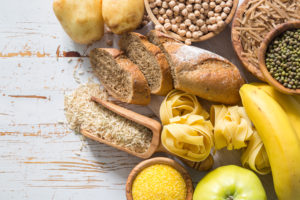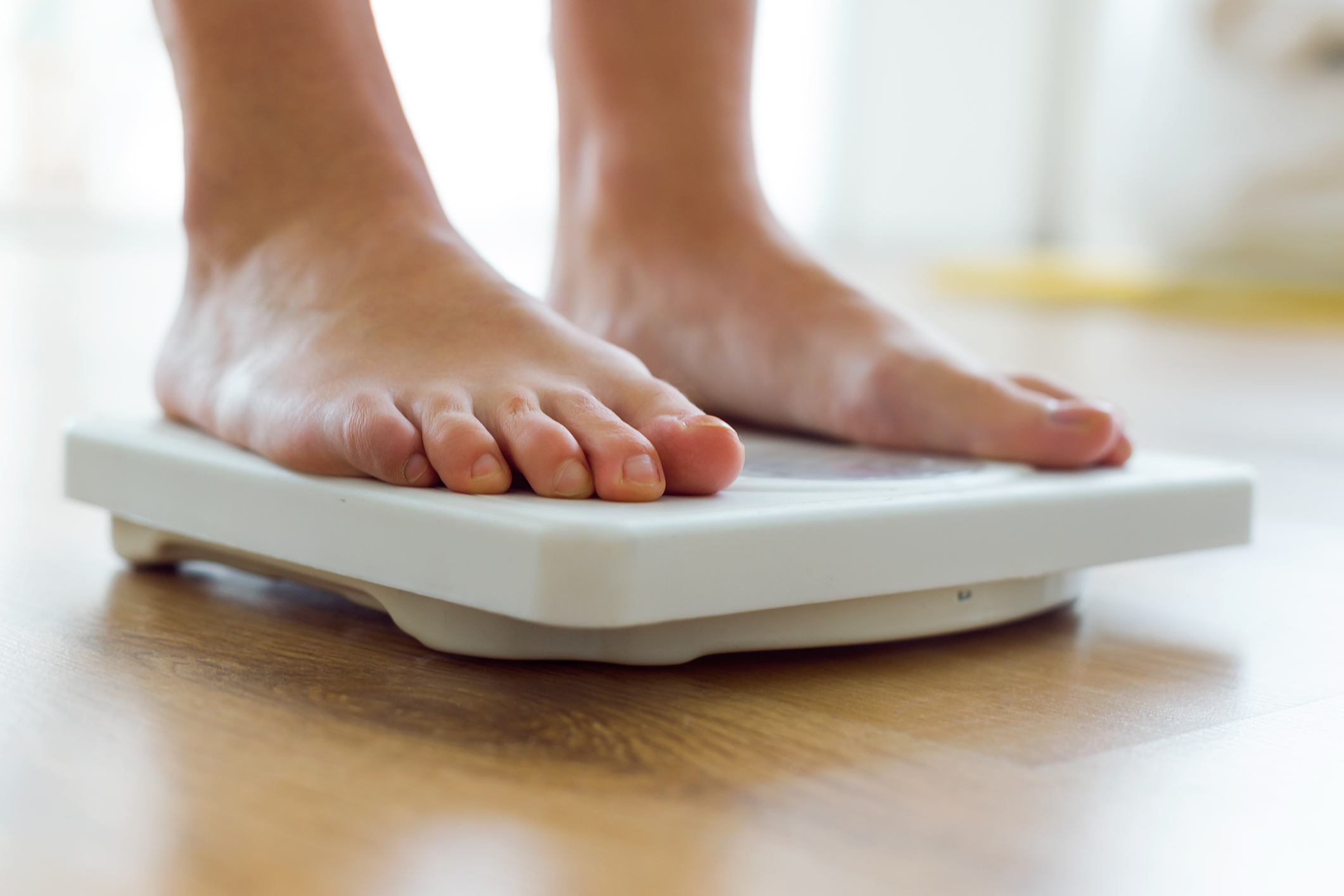It’s easy to lose motivation on a fat loss goal when you aren’t seeing results.
You think you’re doing everything right: dialing in your nutrition, exercising consistently, and maybe even taking supplements to help stay on track.
Despite these diet and lifestyle shifts, nothing in your body composition has changed. What gives?
If you’ve been feeling frustrated by your fat loss progress despite your best efforts, you may be making one of these common mistakes.
Keep reading to see which mistakes might be holding you back from reaching your body composition goals!

OVERTRAINING & UNDER-EATING
The “eat less, move more” prescription for weight loss isn’t as simple as it may seem.
Just because you’re spending hours at the gym doesn’t mean that your body will automatically lean out. In fact, together with a caloric deficit, overtraining can put your body in a state of major stress.
Overtraining ramps up inflammation, lowers thyroid function and immune protection, and can throw off hormonal balance.
Under-eating can have similar impact, effectively doubling the negative symptoms and making fat loss that much more difficult.
WHAT TO DO INSTEAD
Consider switching your mindset to one that uses food as fuel for your workouts. When you feel satisfied by your food, you’ll have more energy at the gym and you’ll have the necessary substrate with which to build muscle.
Better yet, your body will feel calm and nourished enough to loosen its hold on the extra weight, bringing you closer to the fat loss you desire.
Want to learn more? Here are nine signs you may be overtraining.

ALL CARDIO ALL THE TIME
Too much time logged on the elliptical machine does not a fit body make. Using long cardio workouts as your exclusive means for exercise may increase oxidative stress and contribute to a decline in muscle mass.
Although muscle loss technically translates to lower numbers on the scale, maintaining and building lean muscle is a key part of healthy and sustainable weight loss.
WHAT TO DO INSTEAD
Consider decreasing the duration of your cardio workouts. Instead of long runs, try short sprint workouts, HIIT circuits, or gentle walks. These alternatives provide cardiovascular benefits, keep the stress response low, and contribute to lean muscle maintenance.
This, along with added strength training, should keep you on the path toward your fat loss goal.
Interested in building muscle? Here are nutrition and exercise strategies to help you do just that.

AVOIDING CARBS AT ALL COSTS
Low-carb diets swing in and out of popularity in the weight loss realm, but in the female body a very low carbohydrate diet may be more harmful than helpful.
Adequate carbohydrate is essential for thyroid function, sex hormone production, and stress response regulation.
If your carb intake is too low you may be dealing with decreased thyroid capacity and high cortisol. Both of these contribute to fat loss resistance.
There’s no one-size-fits-all prescription for carbohydrates, but if you’re an active woman working toward a fat loss goal, it pays to reexamine your relationship with this macronutrient.
WHAT TO DO INSTEAD
Consider adding more carbohydrate at each meal and see how your body responds.
Would you like to save this post?
Your email address is 100% safe and will never be sent spam.
If you’re working out regularly, a timed dosage before and after your workout might benefit your energy and performance, as well as your recovery.
Better yet, work with a nutritionist to create a plan tailored to your needs and goals.

SLEEP ISN’T A PRIORITY
Deep, restful, and adequate sleep is imperative for weight loss.
When we sleep, our bodies embark on a rigorous repair effort, rebuilding muscle tissue and replacing damaged cells.
Just as important is sleep’s intimate link to weight gain and diabetes risk. As sleep is restricted, glucose metabolism, energy expenditure, and appetite respond, and the risk for insulin resistance and obesity increases.
Additionally, sleep plays an important role in the regulation of the hypothalamic-pituitary-adrenal axis (HPA axis), a complex hormonal systems that controls the stress response and ensures we recover and return to normal after the stress event has passed.
The HPA axis can contribute to poor sleep, as when cortisol is too high for too long. But poor sleep can also impact the HPA axis, leading to dysfunctional hormone output. This cycle can be a hard one to break.
WHAT TO DO INSTEAD
Implement a regular, consistent sleep schedule. Aim for 7-9 hours per night in a dark, cool room. Pay attention to how this affects your body’s outward expressions of stress: your digestion, your skin, your cravings, and your energy levels throughout the day.
Still not convinced sleep is important? Here’s how sleep affects your menstrual cycle, along with three ways to improve sleep the next time you hit the hay.

DISCOUNTING THE MENTAL & EMOTIONAL
The mind-body connection is a powerful tool. How we feel mentally and emotionally can have remarkable impact on the way our body reacts physically, especially when it comes to weight loss.
Yet, too often, we consider our physical well-being as completely separate from that of our more abstract selves.
Whether it’s a busy work environment, an unstable relationship, or a sense of discontent, these mental and emotional challenges can cause as much stress and fat loss resistance as any of the other factors can.
Don’t discount your mind or your spirit when it assessing your wellness goals. Instead, use them to create a holistic plan that takes your whole self into account.
WHAT TO DO INSTEAD
Take stock of your mental and emotional health, and pay as much attention to this as you do to your diet and exercise.
We applaud efforts in eating well and exercising, but the unseen parts of self-care often go unnoticed.
Nourish your spirituality, cultivate community, attend a therapy session, find your why. Start seeing the separate parts of yourself as, in fact, interconnected.
And don’t forget, there’s so much more to heath than your weight and body composition. Don’t let a fat loss goal get in the way of you being your healthiest, most vibrant self.
What’s Your Next Step?
When you…
- stop overtraining and under-eating;
- try strength training;
- add in more carbs to your diet;
- prioritize quality sleep;
- and consider your mental/emotional health as critical to your physical well-being,
You’ll gain important insight into your body that can apply to any wellness goal. Including fat loss!
Now I want to hear from you. What’s the one most important step on this list that you’ll start focusing on to help you reach your fat loss or weight loss goals? Comment below to share your thoughts!
PS – Sign up to work with me one-on-one to make your fat loss efforts as effective and healthy as possible!
This post may contain affiliate links. If you click on a link and make a purchase, I may receive a small commission.

+ show Comments
- Hide Comments
add a comment